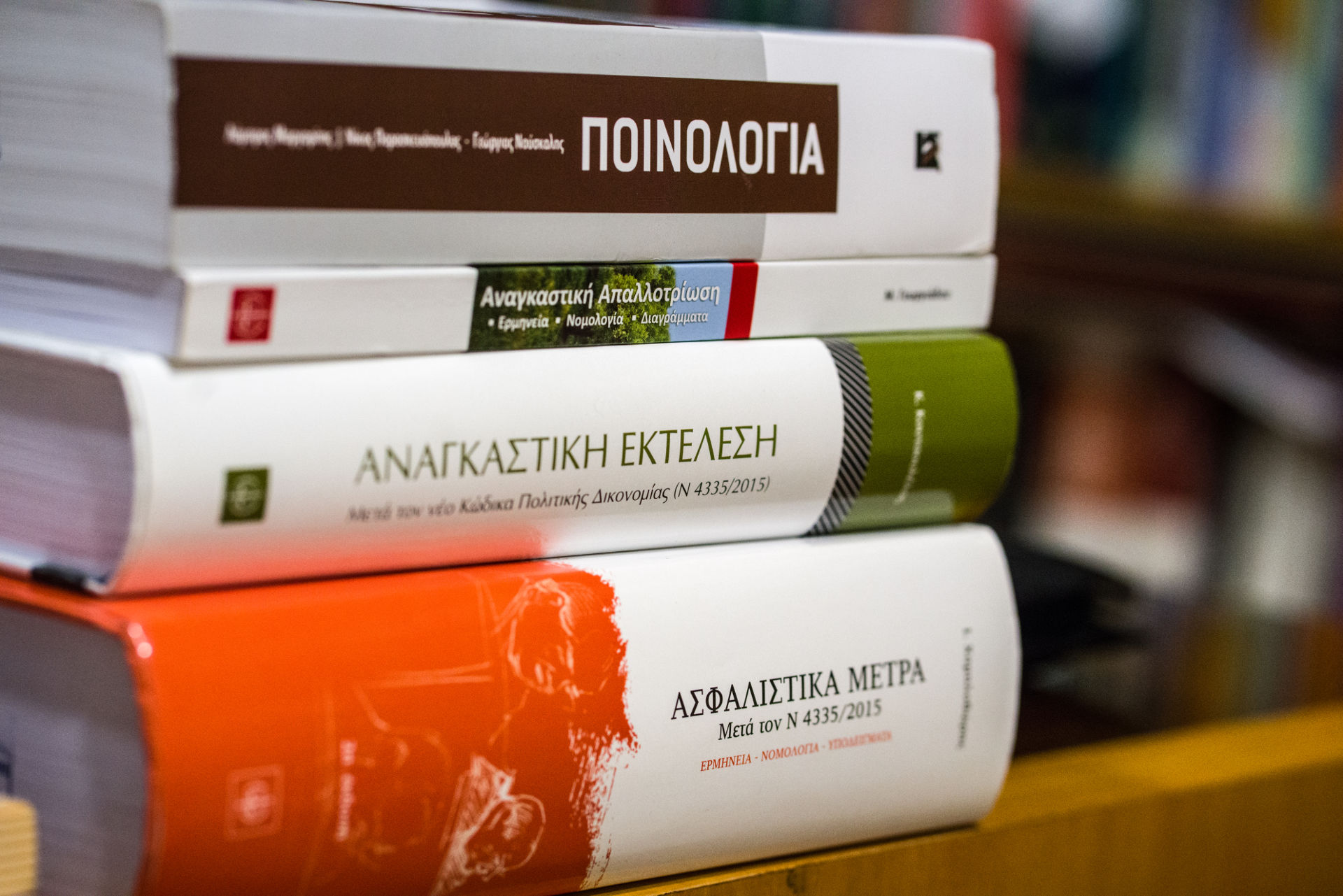Confidentiality Under The ICC Mediation Rules Compared To The LCIA Mediation Rules
Publication date: Sept. 6, 2019, 10:39 p.m.Written by Athanasios I. Patsikas
Lawyer (LLM)
Mediation is an alternative dispute resolution mechanism based on the concept of a win-win settlement, far from litigation court halls. The parties are orientated into assessing their dispute in favor of a final commonly accepted outcome which is legally neither a court decision nor an arbitral award, but it can easily “jump” into an equivalent field as far as its legal nature and effects is concerned, by the time that it is enforced as such in a legal domestic order. It is believed that by the time that the mediation process derives from the parties’ previous consent stipulated in such an agreement, the parties are seeking an amicable way of resolving their dispute, rather than supporting the roles of conflicting opponents fighting and competing over their absolute interests. Literally, mediation is going to save money and time for the stakeholders and will amplify the principle and conduct of good faith in civil and commercial transactions, cultivating the culture of an a priori status of common trust in the course of business. This process may be initiated by the parties or suggested or ordered by a court or prescribed by the law of a Member State1. The participants-parties will discuss in private with a third completely neutral person, the mediator, they will negotiate, suggest and share written statements or thoughts perhaps with the possibility at the end to agreeing that they disagree. It is very obvious that the bond which cannot be solved it may be cut down. In other words, when finally it comes for the inevitable one way road of litigation, a question of great legal importance arises: is the mediation process which took place and failed and its content as well confidential regarding a possible court trial or arbitration proceedings and if yes to which extent? We will seek an approach to the answer by zooming in the respective provisions of two of the most well-known and popular institutions applying alternative dispute resolution systems, the International Chamber of Commerce, seated in Paris and the London Court of International Arbitration.
In fact, if someone made an attempt to predict the approach of each institution without reading the relevant provisions for confidentiality, he would be surprised to find that although the nature of common law gives more priority to party autonomy, what the case appears to be regarding confidentiality is exactly the opposite. The LCIA mediation rule sets a very restricted framework of what confidentiality means, defining that “all mediation sessions shall be private2…and the mediation process and all negotiations and statements and documents prepared for the purpose of the mediation, shall be confidential and covered by without prejudice or negotiation privilege3…”, whereas the ICC rules set the standard of “the absence of any agreement of the parties to the contrary and unless prohibited by applicable law4…”. We see from the beginning that the ICC rules keep a softer approach to confidentiality as it confers upon the parties to pose limits through their agreement. Even from the positive wording of LCIA the message is crystal clear: “all sessions shall be private…” comparing with this of the ICC, setting the requirement of the absence of a contrary agreement.
Ιn general, as Nadja Alexander notes, “ the dimension of confidentiality may extent to a couple of aspects of mediation process, inter alia, to: information created or shared in a mediation joint session, such as the mediator's notes and documents and visual material prepared for the purposes of mediation; information provided to the mediator in a private session or in a phone call or email with one of the parties; observations on the behavior and conduct of participants in mediation; the reasons for failure to reach agreement at mediation5 ”.
Identifying the actors in the process, we may see that these will be the mediator, the parties, their legal counsels or solely their lawyers themselves as legal representatives with the mediator. In addition to these, LCIA rules make an explicit reference to the possibility that there may be “those individuals identified pursuant to Article 5.4”, so anyone can distinct and respect a particular “cross-finger” privacy, not treated the same way by ICC rules of Mediation, as in this situation the story ends among the parties, their lawyers and the mediator. At this point, it worth drawing the difference between privacy and confidentiality, although in practice we rarely zoom in this distinction. Privacy refers to the prohibition for “foreigners” to attend a meeting being physically present during the process whereas confidentiality refers to the content of what the meeting was all about in relation with external persons, simply the rest of the people.
The wording of the LCIA rules lead us to another fundamental difference in the enhancement of confidentiality, compared to that of the ICC. Even the fact that a mediation initiative took place both as a fact and as a process shall not be available as information to be disclosed! The LCIA treats the event as a top-secret listed issue. On the other hand the ICC depicts a different confidentiality notion as we can hear its drafters saying “you can communicate the fact that you have been involved with the process of mediation-meaning that you both gave at least a slight chance of cutting a settlement deal in the light of your conflicting interests before impersonal litigation proceedings started-but you cannot invoke or use as evidence anything said, implied, written, or agreed temporarily, partially of finally along the way of mediation. Mediation as a fact is there, but in the court it will be as enlightening as Mona Lisa’s smile can be for an art critic. You do not know even if it is a smile”.
The ICC rules Art. 9(1) b permit at least the one party to proceed to the disclosure of the settlement on which the parties reached on through mediation process, “only to the extent that such a disclosure is required by applicable law or is necessary for purposes of its implementation or enforcement”. So, we see that the ICC sets the standard of enforcement as a crucial legal justification in the event of a mediation settlement disclosure, something we do not meet in LCIA rules. What also must be underlined observing the wording of ICC6 is that the mediator as an actor in not included in the provision whereas he is included in the respective one of the LCIA7. There is no reference by the ICC that the mediator cannot disclose the settlement. Actually this status is in accordance with the basic principle that in democratic regimes someone can act within the framework of what is legally not prohibited and not of what is permitted.As far as the direct and indirect “products” of mediation is concerned in relation to the court and arbitration proceedings, the two institutions have more or less the same approach with a few deviations from strict confidentiality. The basic rule is that no documents, statements and communications may fall within the scope of what can be admissible as evidence in the above proceedings. The deviations on which the ICC is differentiated from this status are the following:-the fact that the interested party “will not produce as evidence any documents, statements or communications which are submitted by another party or by the mediator in or for the Proceedings…8”. The party though can use what it has already submitted itself in mediation with the burden of proof to fall on its side. At the same time, the LCIA rules prohibit any document, or any other information independently of who was the one to submit them or produce them9.-the fact that the ICC rules specify that inadmissibility goes hand in hand with the “regard to the dispute or the possible settlement of the dispute10” concerning any expressed views or suggestions made by any party, whereas again in LCIA rules the stricto senso confidentiality covers every document or information regarding the mediation in general.
The fact solely that the ICC makes a classification of five categories specifying the magnitude of inadmissibility at different stages of what the evidence can be comprised of depicts a softer approach pursuant to maintain the confidentiality issue, but leaving some paths of a parallel judicial knowledge path, as the drafter in not disturb to know that someone was involved to mediation but he considers inadmissible for the party to let the court know that his opponent was ready to accept a proposal for a settlement11.The LCIA sets the strict standard of “without prejudice”, with the meaning that whichever document was inserted in the mediation process with the above clause cannot be admissible in court or arbitral proceedings12. This specific clause is a sui generis rule of common law countries. It does not exist in civil law countries. It is accepted, that any argument someone may express under a negotiation session, it can be used in court as evidence, according to the legal tradition of civil law jurisdictions. However in LCIA it is not even an issue of party autonomy. There is not the possibility of a different party agreement. But it is the ICC which permits the parties to opt-out and set their customized evidence admissibility criteria concerning mediation.If we zoom out and try to examine where do the borders of confidentiality end as far as the persons having been involved or acted under any role or circumstances in the mediation process of ICC and LCIA respectively, we will find out that there is no provision in the former’s rule to draw red lines for what its assisting staff has heard or written on the occasion of mediation. In fact the mediator under ICC rules is not prohibited to testify as witness, of course with the ultimate mandate to defend confidentiality in the prescribed ICC framework. On the contrary, the LCIA sets the cornerstone for the a priori invalidity of any clause creating legal obligation for its staff to communicate information in any conceived manner, court related or not.
It is the LCIA who has the intention to render the whole mediation process a ghost-one if it does not reach to a settlement in the end that is why he has inserted the specific provision of the non-existence of any formal record or transcript of the mediation13. Profoundly, he does not leave the Centre vulnerable to the slight possibility that the minutes of mediation with a protocol number may fall into the hands of the wrong man, even by luck. We will not find a provision with such substance in ICC rules. It seems that LCIA values a little bit more its immunity.
In conclusion, it is quite evident that confidentiality is treated differently by the above two institutions. The LCIA stands for stricto senso confidentiality whereas the ICC applies the party autonomy style which is prescribed by the Directive 2008/52/EC14. Though confidentiality is the dna chain of mediation, the way each State even within the territory of European Union treats it, testifies against uniformity. The truth is that the above directive remains silent enough to create easy doubts for the domestic legislators on which confidentiality model to move on. This is not just a fact. It is a bell ringing for EU, to focus on harmonizing with the raison d’ etre of mediation, confidentiality. The challenge which we have accepted with mediation, as an alternative dispute resolution system, is to gain trust and fidelity credits from and for the market. If cross-border traders be persuaded that it is not necessary to drag each other into court and harm their negotiating reputation in irreparable level, mediation will gain the share it deserves. It is all about making financial globalization easier and fast.
1 Council Directive 2008/52 EC of 21 May 2008 on certain aspects of mediation in civil and commercial matters
[2008] L136/3, art 3(a)
2 LCIA rules of Mediation Art. 10.1
3 LCIA rules of Mediation Art. 10.2
4 ICC rules of Mediation Art. 9(1)
5 Nadja Alexander, ‘Chapter 6: Confidentiality’, in Nadja Alexander (ed) International and Comparative Mediation (Global Trends in Dispute Resolution, Kluwer Law International 2009) vol 4, 248.
6 ICC rules Art. 9 (1) b :“…except that a party shall have the right…”
7 LCIA rules Art. 10.3
8 ICC rules Art. 9 (2) a
9 LCIA rules Art.10.4
10 ICC rules Art. 9 (2) b
11 ICC rules Art. 9 (2) e
12 LCIA rules Art. 10.2
13 LCIA rules Art. 10.5
14 Directive 2008/52/EC, Art. 7





